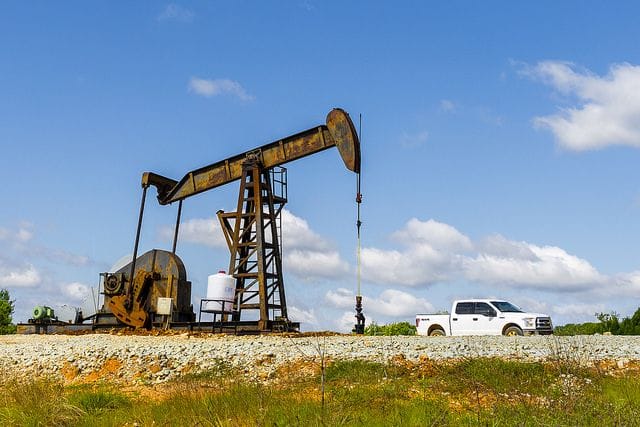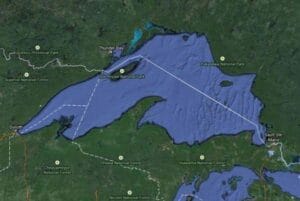“Oil and petroleum products are essential for transportation and industrial purposes, all of which are tied to the global economy. The world’s oil supplies are finite and will be depleted over time. Venezuela currently leads in oil reserves, with 296 billion barrels, and is continually prospecting for additional deposits, according to government surveys. The total estimated oil reserve in the world is approximately 1.39 trillion barrels.”

11. Nigeria
Nigeria, located in West Africa, is the continent’s largest oil producer and ranks 10th globally in proven oil reserves, with approximately 37.2 billion barrels as of 2011. The majority of Nigeria’s oil is located in the Niger Delta region and offshore fields in the Gulf of Guinea. The country’s economy heavily relies on the oil sector, which contributes to over 90% of export earnings. Nigeria is a key member of OPEC and produces around 1.3 to 1.5 million barrels per day, though output is often affected by security issues and infrastructure challenges.
10. Libya
Libya, located in North Africa and bordered by several countries including Egypt and Algeria, possesses the largest proven oil reserves in Africa at 47 billion barrels, as of 2010. Most of its reserves are located in the Sirte Basin, which accounts for over 80% of its oil output. Libya’s economy is heavily dependent on oil, with about 85% of its crude exported, primarily to European markets. Despite ongoing political instability since 2011, Libya continues to be a strategic player in the Mediterranean energy supply chain, with production levels fluctuating between 700,000 to over 1 million barrels per day.
9. Russia
Russia, the largest country by area and a global energy superpower, holds an estimated 74.2 billion barrels of proven oil reserves. It is one of the world’s top three oil producers, with daily production reaching over 10.5 million barrels. Key oil-producing regions include Western Siberia, the Volga-Urals, and Eastern Siberia, along with offshore fields in the Arctic. Russia exports crude primarily to Europe and China, and its energy sector plays a vital role in both its economy and foreign policy. State-controlled companies like Rosneft and Lukoil dominate the industry.
8. United Arab Emirates (UAE)
The United Arab Emirates, located in the Persian Gulf region, holds approximately 98 billion barrels of proven oil reserves, with the vast majority—about 92 billion barrels—located in Abu Dhabi. Smaller reserves are found in Dubai and Sharjah. The UAE is a prominent OPEC member and a major global oil exporter. It currently produces around 3 to 3.5 million barrels per day, with plans to expand capacity further. The UAE is also investing heavily in renewable energy and economic diversification to reduce its dependence on oil, led by its national oil company ADNOC.
7. Kuwait
Kuwait holds approximately 104,000,000,000 barrels of Oil reserve, this country’s most of the income from Oil production. Most of the major Oil fields are over 60 years old. Kuwait owns 8% of the oil reserves in the world. Kuwait’s substantial oil reserves also contribute to the dinar’s high value, making it the highest currency in the world.
6. Mexico
Mexico, located in North America and sharing a border with the United States, has a diversified economy with a GDP of approximately $1.629 trillion. The country holds proven oil reserves of around 139 billion barrels, primarily concentrated in the Gulf of Mexico. State-owned company PEMEX (Petróleos Mexicanos) oversees much of the oil production, although recent reforms have allowed foreign investment. Mexico produces over 1.9 million barrels per day, making it one of Latin America’s top producers. The country’s Ku-Maloob-Zaap complex is one of its largest offshore production centers.
5. Iraq
Iraq possesses the 5th largest confirmed oil reserves in the world at approximately 143.5 billion barrels, mostly located in the southern region near Basra and in the northern fields of Kirkuk. The Ministry of Oil has suggested Iraq could hold over 350 billion barrels based on untapped reserves, though not officially verified. Iraq is a founding member of OPEC and a significant exporter, contributing over 4 million barrels per day to the global market. The West Qurna, Rumaila, and Majnoon fields are some of the largest contributors to its oil output.
4. Iran
Iran, situated in the Persian Gulf, holds an estimated 150 billion barrels of proven oil reserves—about 10% of the world’s total. Iran is a member of OPEC and has historically been a major global oil exporter. Despite economic sanctions affecting output and investment, the country still manages to produce over 3 million barrels per day. Iran’s oil infrastructure includes key fields like Ahvaz, Marun, and Gachsaran, and it also has large reserves of natural gas, making it a major energy power in the region.
3. Canada
Canada ranks third globally in oil reserves, with an estimated 179 billion barrels, most of which are found in the oil sands of Alberta. These are unconventional reserves, requiring advanced extraction techniques such as steam-assisted gravity drainage (SAGD). Canada’s oil production averages over 5 million barrels per day, with most of it exported to the United States. The Athabasca oil sands, along with conventional fields in Saskatchewan and offshore resources in Newfoundland, are vital to Canada’s energy sector.
2. Saudi Arabia
Saudi Arabia, located on the Arabian Peninsula, is the world’s second-largest holder of proven oil reserves, totaling about 267 billion barrels. The country operates under Saudi Aramco, the world’s most valuable oil company. Saudi Arabia has around 100 major oil and gas fields, and the Ghawar Field is the largest oil field globally, with estimated reserves exceeding 70 billion barrels. The country produces around 10 million barrels per day and is a key player in OPEC+ decisions, influencing global oil prices and production quotas.
1. Venezuela
Venezuela has the largest proven oil reserves in the world, totaling over 297 billion barrels, primarily located in the Orinoco Belt, a region rich in heavy crude. While some surveys estimate up to 900 to 1,400 billion barrels in unconventional deposits, these figures are not fully verified. Venezuela was once a major oil exporter to the United States, but political instability, underinvestment, and sanctions have significantly reduced production to below 1 million barrels per day in recent years. Still, the potential for development remains immense.
Note: The data based on the examination of geological and technical way from official sources (survey of 2010-2011).











